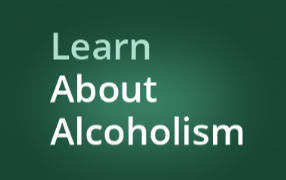Binge Drinking Statistics
Binge drinking statistics tell us that there are many dangers of binge drinking. Binge drinking is defined as drinking several drinks in close succession, generally five drinks for men and four drinks for women.
Binge drinkers may not drink every day. They may drink weekly or less often, although studies show most drink about twice a week. They may or may not be addicted to alcohol.
Binge drinking peaks between the ages of 18 and 22. Many of these drinkers are college students. However, high school students binge drink as well. Statistics indicate that binge drinking often begins as young as 13 years of age.
The Dangers of Binge Drinking
There are a large number of dangers of binge drinking. Health-related binge drinking statistics can be alarming. The following health problems have been found to be associated with binge drinking:
- Alcohol poisoning.
- Liver disease.
- High blood pressure, stroke, and other forms of cardiovascular disease.
- Neurological damage.
- Sexually transmitted diseases.
- Unintentional pregnancy.
- Fetal Alcohol Syndrome (if pregnant women binge drink).
- Unintentional injuries (such as car accidents, falls, etc.).
- Intentional injuries (such as injuries from firearms, domestic violence, etc.).
In addition, it should be noted that the younger one begins drinking, the more likely they are to develop alcohol dependence. For instance, nearly 25% of those who begin drinking alcohol before the age of 17 become alcoholics, compared to 10% of those who begin drinking alcohol after 21 years of age.

Alcohol Poisoning
Alcohol poisoning is one of the greatest dangers of binge drinking. It is a serious condition that can occur when the blood alcohol concentration rises too high. Symptoms include severe vomiting, depressed respirations, and seizures. It can result in coma and even death.
Alcohol poisoning requires medical attention and often requires hospitalization in order to stabilize and monitor the patient. Binge drinking is not the only cause of alcohol poisoning, but it is a common cause.

What is Binge Drinking?
Binge drinking is defined as drinking several alcoholic beverages in close succession. Typically, five drinks for men and four drinks for women are considered binge drinking, although some people may drink more or less depending on their size and body makeup.
The frequency at which one binge drinks per month can vary greatly from person to person. Some individuals binge drink once every few months while others may binge drink on almost an everyday basis.
Binge drinking is characterized by a loss of control over alcohol consumption. Individuals who binge drink may continue to binge drink beyond the point of intoxication, even when they will need to drive home or perform other activities that require their full attention.
Prevalence of Binge Drinking
The binge drinking statistics tell us that binge drinking as a whole is on the decline, yet it is still very common. Consider the following statistics:
- Binge drinking is most common between ages 18 and 22.
- 42% of college students report binge drinking.
- One in five college students is a frequent (weekly) binge drinker.
- Half of all students who binge drink do so more than once a week.
- Two-thirds of alcohol consumed by college students is consumed by binge drinkers.
- 60% of all problems with the police on college campuses (such as injuries, vandalism, etc.) involve binge drinkers.
College students often over-estimate the number of their peers who drink, however, and the amount of alcohol consumed by their peers, creating a false sense of pressure to drink.
Preventing Binge Drinking
Binge drinking statistics tell us that the following interventions help to reduce the incidence of binge drinking:
- Reduce access to alcohol on college campus by having fewer stores selling alcohol nearby.
- Education by high schools and colleges about the dangers of binge drinking.
- Physician screening, counseling, and referral for treatment of alcohol problems.
Some also suggest raising the cost of alcoholic beverages and taxes on alcohol to prevent binge drinking. As you may imagine, this strategy is at best controversial. However, it would likely cut down on alcohol abuse altogether, not just binge drinking.
It would particularly cut down on alcohol use and abuse among young people, who have less discretionary income, and might have a fairly significant impact on underage drinking.
Hopefully, the binge drinking statistics will continue to improve in the coming years.
What Do You Think?
Many people engage in this behavior without considering the consequences. Binge drinking may be more common than you think.
Binge drinkers are not always young adults either; binge drinking statistics show that it can begin at any age! If you find yourself engaging in this dangerous behavior, take a step back and consider what alcohol consumption has done to your life so far: Is there anything positive about your drinking habits? What things could change if you quit binge drinking?
If you need help to put a stop to binge drinking, there are a lot of treatment options and support groups that can help you. Reach out to a dedicated treatment provider today!

I am a Mental Health Counselor who is licensed in both New York (LMHC) and North Carolina (LCMHC). I have been working in the Mental Health field since 2015. I have worked in a residential setting, an outpatient program and an inpatient addictions program. I began working in Long Island, NY and then in Guelph, Ontario after moving to Canada. I have since settled in North Carolina. I have experience working with various stages of addiction, depression, anxiety, mood disorders, trauma, stages of life concerns and relationship concerns.
I tend to use a person-centered approach which simply means that I meet you where you are and work collaboratively to help you identify and work towards accomplishing goals. I will often pull from CBT when appropriate. I do encourage use of mindfulness and meditation and practice these skills in my own life. I believe in treating everyone with respect, sensitivity and compassion.
I recognize that reaching out for help is hard and commend you for taking the first step. We have professionals available who would be happy to help you move closer to reaching your goals related to your drinking concerns. You may reach these professionals by calling 877-322-2694.
